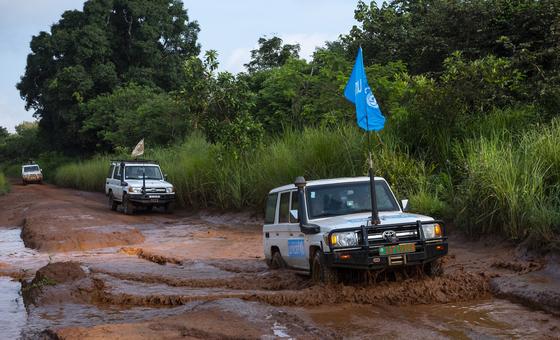
Abdou Abarry, UN Special Representative for Central Africa, told ambassadors in the Security Council that disasters and extreme weather events displaced more than three million people in the region this year alone.
This has worsened an already fragile socio-economic situation and underscored the need for stronger climate action.
Climate and humanitarian crises
“The Congo Basin forest, the ‘second green lung’ of the planet, which absorbs 1 to 1.2 billion tons of carbon dioxide annually and plays a strategic role in global climate regulation, was recognised as critical at COP29,” Mr. Abarry stated.
However, international climate financing remains inadequate, with less than 15 per cent of commitments fulfilled.
Humanitarian conditions are also deteriorating, driven by population displacements and emerging health threats such as Mpox, particularly in the Democratic Republic of Congo (DRC).
Urging the international community for greater efforts in this regard, he warned that the current pace of assistance was not sufficient to meet the “staggering needs”.
Electoral and political developments
Mr. Abarry also informed Security Council members of July’s legislative elections in Rwanda. Looking ahead, he said the UN Regional Office for Central Africa (UNOCA) is closely monitoring preparations for several elections in the region.
Among them, Burundi, Cameroon, Gabon and the Central African Republic (CAR) are scheduled to go to polls next year, and Congo and São Tomé and Príncipe in 2026.
Countries such as Chad, Cameroon, São Tomé and Príncipe, Gabon and CAR, have sought electoral assistance from the United Nations, reflecting trust in the Organization, Mr. Abarry said.
Regional peace and security
He also highlighted the need for continued efforts to address insurgencies in the Lake Chad Basin, particularly attacks by Boko Haram affiliates.
In this regard, a joint UN mission recently advocated for bolstering the Multinational Joint Task Force, which plays a key role in regional security, he added.
Alongside, nations in Central African continue to resolve disputes peacefully, he continued, with Gabon and Equatorial Guinea referring their border dispute to the International Court of Justice (ICJ).
High-level dialogues are also ongoing between Chad and CAR regarding border security, he added.
Looking to 2025
Looking ahead, Mr. Abarry outlined key priorities for the region, including enhanced international funding for climate resilience, humanitarian assistance and peace initiatives.
The UNOCA, for its part, plans to support these efforts, focusing on strengthening regional stability and addressing humanitarian challenges.
In February 2025, the Economic Community of Central African States (ECCAS), in collaboration with UNOCA, will hold a summit to tackle climate and humanitarian issues.
Concluding his address, Mr. Abarry expressed hope for peace, justice, and prosperity in 2025, guided by a “revitalised multilateralism aligned with the ideals of the UN Charter and the Pact for the Future.”
